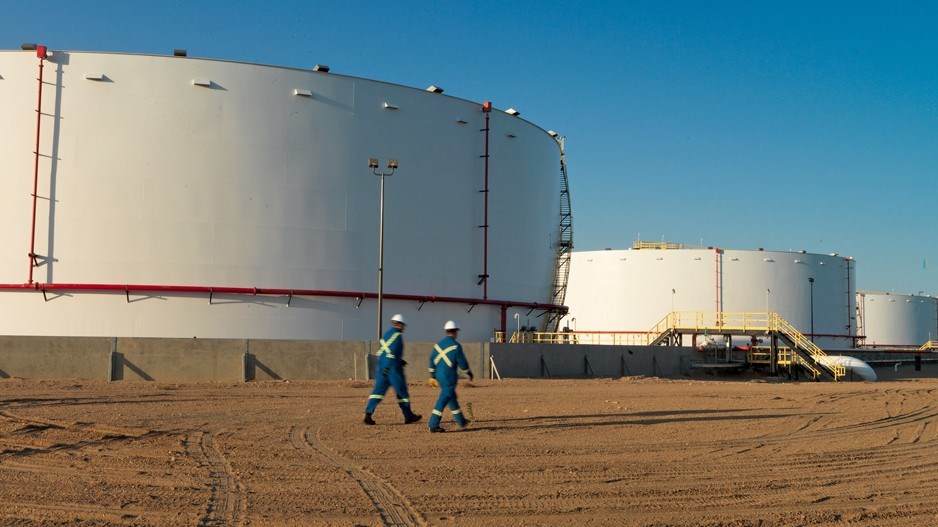Joe Biden began his U.S. presidency last week with a move that could have serious consequences for Canada’s most valuable export: oil.
As promised, one of his first acts as president was to sign an executive order rescinding a permit for the construction of the US$8 billion Keystone XL pipeline.
In doing so, he underscored how important it is for Canada to complete the Trans Mountain pipeline expansion, which now starts to look like a reliable hedge against the caprices of U.S. politics.
But it also established a precedent that could have even more dramatic impacts for Canada. Keystone XL is not the only pipeline that has been targeted by Democrats aligned with environmentalists.
Line 5, which runs through Michigan and supplies Ontario’s refineries and petrochemical industry, could also be shut down, if Michigan’s governor gets her way. The result would be devastating for Southern Ontario’s economy.
The state’s governor has ordered the pipeline shut down, an order Enbridge Inc. (TSX:ENB) is ignoring, saying the state doesn’t have jurisdiction over pipelines. Given that the pipeline is a federal matter governed by a U.S.-Canada treaty, Biden may have to weigh in on the dispute.
Alberta Premier Jason Kenney worried out loud last week that Biden’s decision to kill Keystone XL could set a precedent. The portion of the pipeline that crosses between Canada and the U.S. is already built. If Biden is willing to cancel a project that is already underway, what’s to stop him from shutting down other pipelines that are already built?
“We have senior members of this administration with close connections to the effort to kill the Line 5 that delivers most of the energy to Michigan and Southern Ontario,” Kenney said.
“If rescinding a presidential permit for a pipeline border crossing is validated … if there is no push-back from Canada’s government, I think it merely encourages those organizations to use this tactic to landlock Canadian energy.”
Under a Biden administration, energy policy overall promises to undergo a significant shift. There are pros and cons for Canada. Biden has promised massive investments in clean energy, and a suite of tighter regulations and bans for the fossil-fuel sector.
A Biden White House will almost certainly be good for Canadian clean-energy and clean-tech companies like Ballard Power Systems (TSX:BLDP) and Westport Fuel Systems (TSX:WPRT). Biden has promised that every city in the U.S. with 100,000 people or more will get “zero-emission public transportation options.”
A Biden White House may even be good for Canadian natural gas producers and liquefied natural gas (LNG) projects, because he has promised tighter regulations for the U.S. fracking industry that may make it more expensive to operate in the U.S., which might make Canadian natural gas and LNG sectors more competitive.
Kenney urged Prime Minister Justin Trudeau last week to meet with Biden to get him to rethink his decision on Keystone XL. But TC Energy (TSX:TRP) has already halted the project, sent thousands of workers home and will stop financing it.
After he meets with his secretaries of energy and national defence, Biden may be confronted with some hard realities about Canada’s heavy oil, in that it is a critical part of U.S. energy independence and, hence, its national security.
Canada is the largest source of U.S. energy imports and the second-largest destination for U.S. energy exports, says the U.S. Energy Information Administration.
“The KXL pipeline, long delayed by political wrangling, is important to the United States’ energy security in that it strengthens this country’s energy relationship with Canada, our No. 1 source of imported oil,” says the American Petroleum Institute (API).
The API notes that, despite U.S. oil imports falling to their lowest level in 2019 since 1954, the U.S. still imported 6.8 million barrels of oil per day last year – 56% of which came from Canada.
In response to Biden’s decision last week, the Wilderness Committee said Biden “is showing us what real climate leadership looks like” and called on the Canadian government to follow suit and cancel the Trans Mountain pipeline expansion.
But given the roadblocks Biden just put up, the Trudeau government’s decision to complete the Trans Mountain expansion – a pipeline no U.S. president can touch – is starting to look prescient.
“It also makes it smart to start rethinking other ones – Northern Gateway, Energy East,” said Dan McTeague, president of Canadians for Affordable Energy. “If the Americans don’t want us, then let’s ramp up our exports to other countries, like China.”
Should the Keystone XL project die, Alberta oil producers should still have two new outlets for their oil: Trans Mountain and Line 3, provided Biden does not halt the latter project as well. And there is nothing preventing the continued – or increased – movement of Alberta oil by rail.




